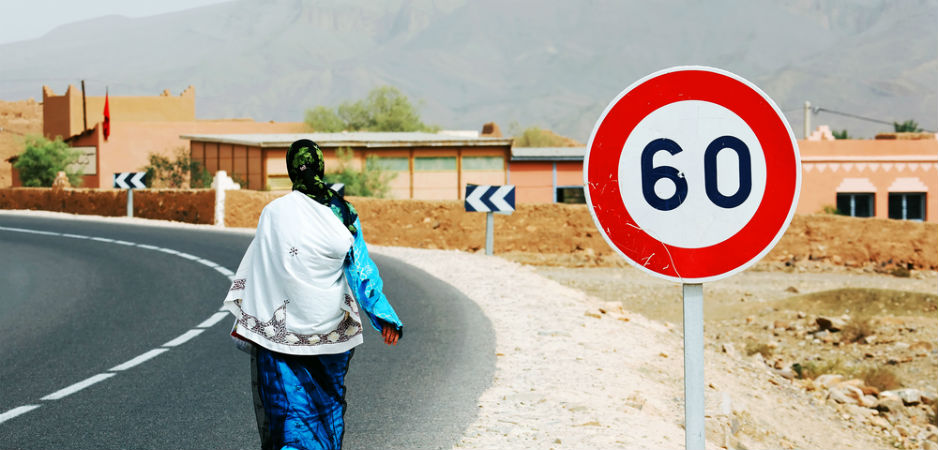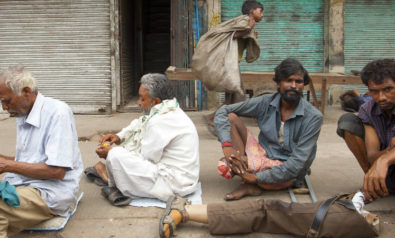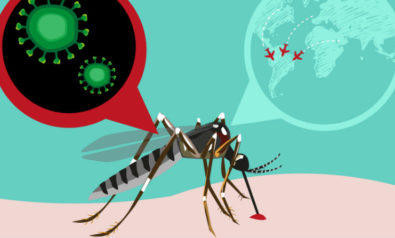Single mothers face several obstacles to enlisting their children in the Moroccan civil registry, which affects their access to education and health care.
Issues of health and poverty are often viewed as arising from the people who they affect. This results in the pathologization of vulnerable populations and diverts attention away from far-reaching factors that contribute to these issues. In Morocco, administrative intricacies can make medical care and social services difficult to access, especially for single mothers and their children. The official pathway to public services is registration in l’état civil, the civil registry. Although enrollment is compulsory, the requirements can be overwhelming for single mothers to complete, let alone within the registration deadline of 30 days after giving birth.
Despite the existence of an official route for single mothers to register their children, strong connections between society, religion and patriarchy create stigma that can cause cooperation problems between concerned parties in the registration process. These connections are reinforced by Moroccan law, which deems punishable sexual relations out of wedlock. Due to shame and fear of legal retribution, many single mothers abandon or hide their children. Fortunately, punishing mothers has become less of a priority since the 2004 Family Code reforms, which aimed to put the wellbeing of children first and give single mothers more autonomy in registering their children.
Ostensibly, the reformed Family Code simplifies the registration process by allowing a single mother to declare her child by inventing a name for the father using an approved list and a formula that requires the first name to begin with Abd (e.g. Abd al-Haq). Still, the reforms do not permit mothers to obtain a Livre de Famille, the document that lists family members and proves their civil status. Only men can obtain this book upon marriage. Additionally, there are still many issues with implementing the reforms, due to the lack of coordinated policies between different municipalities and the reluctance of personnel in the judiciary to adapt to a new set of procedures.
Rural Morocco
Hannah Bradley is an employee at the Moroccan Children’s Trust (MCT) who coordinates the Identity Papers Project, which aims to promote a more efficient national civil registration process through raising public awareness, training statutory service professionals and advising difficult cases. She suggests that economic restrictions on single mothers may make costs associated with registration procedures prohibitive. Often, the civil registry office requires a tuberculosis vaccination record to complete the registration process. Vaccinations must be administered in the child’s place of residence, whereas registration must be processed at the child’s place of birth. These requirements are significantly more costly for women who live far away from where they gave birth.
The challenge of registration is even more onerous in rural areas due to several factors. Rural areas tend to be more community oriented, thus a single mother risks damaging the honor of more people and facing more stigmatization. Additionally, rural communities are still recovering from decades of inadequate investment in education and infrastructure. As a result, single mothers in rural areas are more likely to be illiterate and less likely to have access to organizations that support women and children.
Finally, the proportion of working rural women is higher than working urban women due to rural women’s involvement in agricultural activities. These activities reduce the amount of time single mothers in rural areas can commit to understanding and completing the registration process. All this points to the need for more effective information campaigns about civil registration that utilize non-written materials, and for more organizations that support single mothers in rural areas to register their children on time.
Registration is a crucial step in ensuring future access to education, public health and social services. Unregistered children grow up as second-class citizens, without possession of administrative documents that authorize their rights to hospital care, education beyond primary school and employment. MCT, in collaboration with La Fondation Amane pour la Protection de l’Enfance (FAPE), is one of the organizations working to support vulnerable women and children by combating issues that lead to their marginalization and increasing awareness of the national birth registration system across Morocco.
Based on an initial pilot project and a regional conference, MCT and FAPE made several recommendations to increase the efficiency of the national registration system. Bradley emphasized the importance of making the process more accessible through mobile registration and information campaigns in maternity wards and schools.
She also pointed to lack of mobility and time away from work as significant obstacles to single mothers completing the registration process. Finally, she drew attention to one of MCT’s recommendations for change regarding the current naming procedure to reduce prejudice against children with single mothers. In the case of a child with an unknown father, the space for a paternal grandfather on the national identity card is left blank. In order to eliminate discrimination and protect confidentiality, MCT proposes that identity cards not distinguish people based on paternal origin.
The issue of national registration is part of a larger discussion on the equitable and efficient provision of services in Morocco, and the elimination of discrimination against “illegitimate” children through an improved registration process. Nevertheless, costs, stigma and lack of access to information about the process can be significant barriers to registration for single mothers. More coordination between government and associations is needed in dealing with the complex cases of single women and their children, in order to ensure that children do not lose out on their basic rights as citizens.
The views expressed in this article are the author’s own and do not necessarily reflect Fair Observer’s editorial policy.
Photo Credit: Mikadun / Shutterstock.com
 We bring you perspectives from around the world. Help us to inform and educate. Your donation is tax-deductible. Join over 400 people to become a donor or you could choose to be a sponsor.
We bring you perspectives from around the world. Help us to inform and educate. Your donation is tax-deductible. Join over 400 people to become a donor or you could choose to be a sponsor.
Support Fair Observer
We rely on your support for our independence, diversity and quality.
For more than 10 years, Fair Observer has been free, fair and independent. No billionaire owns us, no advertisers control us. We are a reader-supported nonprofit. Unlike many other publications, we keep our content free for readers regardless of where they live or whether they can afford to pay. We have no paywalls and no ads.
In the post-truth era of fake news, echo chambers and filter bubbles, we publish a plurality of perspectives from around the world. Anyone can publish with us, but everyone goes through a rigorous editorial process. So, you get fact-checked, well-reasoned content instead of noise.
We publish 2,500+ voices from 90+ countries. We also conduct education and training programs
on subjects ranging from digital media and journalism to writing and critical thinking. This
doesn’t come cheap. Servers, editors, trainers and web developers cost
money.
Please consider supporting us on a regular basis as a recurring donor or a
sustaining member.
Will you support FO’s journalism?
We rely on your support for our independence, diversity and quality.



















